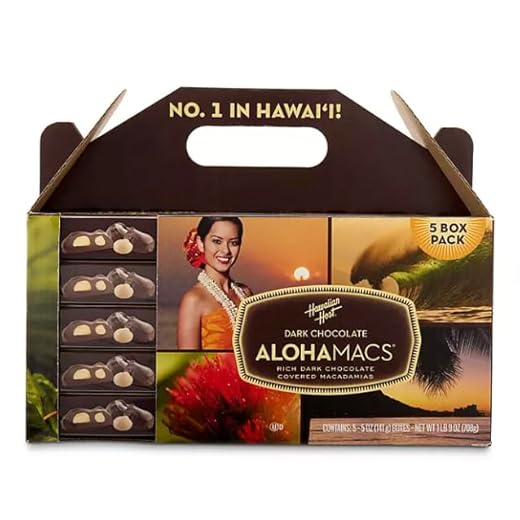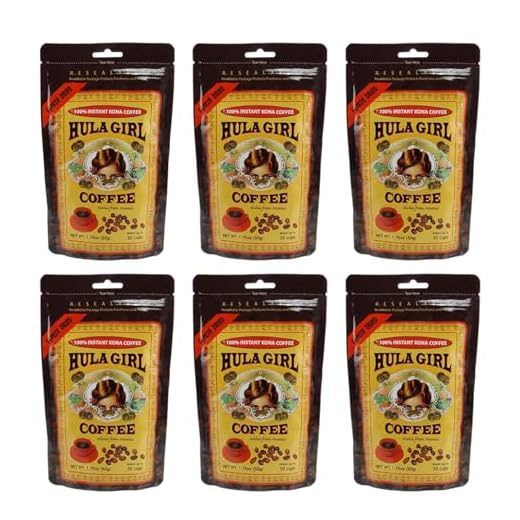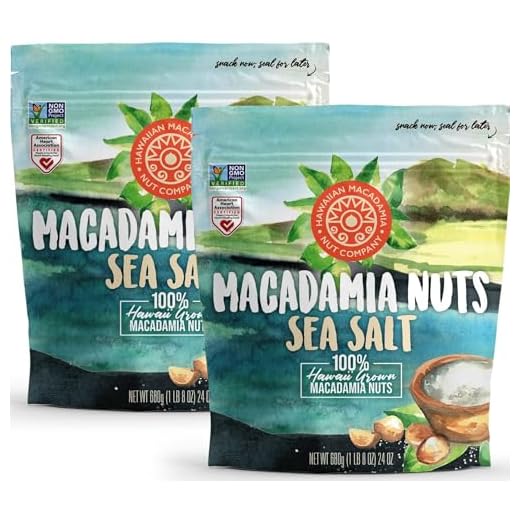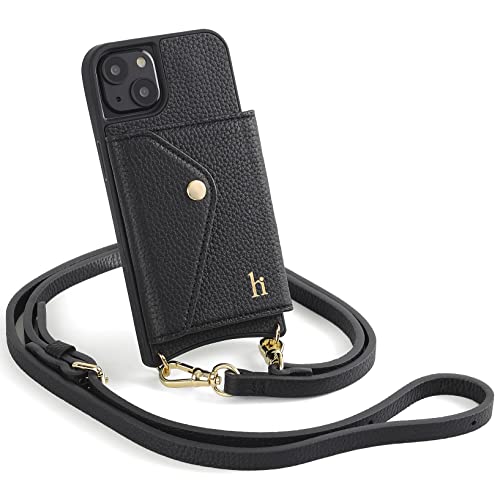







Travelers should be aware that various restrictions apply to carrying edible items into the islands. Certain items, such as fresh produce and meats, are prohibited due to agricultural laws aimed at protecting local ecosystems. Processed and packaged snacks generally pass inspection without issues, making them a viable option for those looking to enjoy familiar treats.
Before packing your meals, check the guidelines set forth by the state’s Department of Agriculture. Specific regulations dictate what is permissible, and violations may result in fines or confiscation at the airport. Prepared foods, such as items from commercial establishments sealed in their original packaging, usually meet the criteria for import.
When contemplating what to include, prioritize vacuum-sealed or canned items, as these often comply with transportation standards. Doing a little research beforehand can save time at customs and ensure a smooth arrival at your destination. Be mindful of labeling requirements and always declare your items to officials if uncertain about their status.
Guidelines for Packing Snacks to the Islands
Only specific items are allowed in your travel case, and certain restrictions apply to ensure the protection of local ecosystems. Verify whether your items meet the regulations set by agricultural authorities.
- Permitted items typically include commercially packaged snacks such as chips, cookies, and candy.
- Fresh produce, including fruits and vegetables, is generally prohibited. This helps maintain the ecological balance.
- Meat and animal products face strict limitations. Seek guidance on acceptable items to avoid complications at customs.
- Certain baked goods, like bread and cakes, are allowed, but check for any dairy ingredients that may not be permitted.
Prior to your trip, review the official website of the local agricultural department for the most current regulations. This will assist in packing without violating any laws and ensure a smooth entry to the islands.
If you are uncertain about an item, consider purchasing snacks upon arrival. Local shops offer a variety of unique treats that reflect the region’s culture and flavors.
Understanding Hawaii’s Agricultural Restrictions
Hawaii enforces strict regulations on agricultural imports to protect its unique ecosystem. All travelers must declare any organic items at customs. Certain products, like fresh fruits, vegetables, seeds, and nuts, are often prohibited. Items deemed high risk for pests may be confiscated.
Packaged goods, such as commercially processed snacks and food items, usually pass inspection without issues. Always check the packing labels for specific restrictions prior to travel. Local authorities also recommend avoiding live plants and animal products due to disease risks.
Utilize resources from the Hawaii Department of Agriculture for the most current guidelines. Compliance with these rules helps safeguard native flora and fauna while ensuring the safety of local agriculture.
Types of Food Allowed in Checked Luggage
Specific items are permitted in checked baggage for your travel. Always ensure that these items comply with agricultural regulations.
- Canned Goods: Most canned items are acceptable, provided they are unopened and commercially packaged.
- Packaged Snacks: Chips, crackers, and similar snacks that are sealed and non-perishable are suitable for transport.
- Condiments: Sealed containers of sauces and dressing can usually be transported, but check for any restrictions.
- Bakery Products: Breads, cakes, and cookies are typically allowed, as long as they are commercially made.
- Dried Fruits and Nuts: These items are generally safe to include, provided they are in sealed packaging.
- Cheese: Hard cheeses are often allowed, but soft cheeses may have restrictions.
Avoid items like fresh fruits, vegetables, and meat products as they may face restrictions or require special permits. Always check the latest guidelines before traveling.
For additional insights, explore topics such as how to repair a compressor in an air conditioner for useful tips during your travels.
Foods You Should Leave Out of Your Bags
Do not pack items such as fresh fruits and vegetables. These products are strictly prohibited to prevent the introduction of pests and diseases to the local ecosystem. Similarly, items like raw or uncooked meats, as well as dairy products, are not permitted due to health regulations in place.
Processed snack foods that contain meat or certain cheeses may also be scrutinized. Check ingredient lists carefully to avoid complications. Specialty items like certain sauces or condiments can also run into issues if they contain prohibited ingredients.
Specific Restrictions
Be aware of restrictions on tropical fruits and nuts. Items like macadamia nuts are often acceptable, but sourcing local varieties may have specific guidelines or limitations.
Ready-to-Eat Options
While many pre-packaged meals may seem like convenient options, they can face bans if they contain restricted components. Frozen items can also be problematic. Before packing, familiarize yourself with what is allowed. For ease of travel, consider using a best waist packs for walking to keep permitted snacks on hand.
How to Declare Food Items at Customs
Clearly state any items you are carrying on the customs declaration form. An incomplete disclosure may lead to penalties or confiscation of your goods.
Review the list of prohibited and restricted products before your trip. Certain agricultural items may require special inspection or might be entirely banned. Doing so can save you from unnecessary complications.
If unsure about an item, it’s best to ask a customs officer upon arrival. They can provide guidance on whether specific items are permissible and the process for declaring them.
Keep packages intact, with original labeling if applicable. This helps customs officials quickly identify the contents and assess any risks associated with them.
Be prepared to relinquish or dispose of unauthorized items on the spot. Customs may have designated disposal locations to facilitate this process efficiently.
Maintain receipts for purchased items, especially if they are perishable or specialty items. Documentation can assist in verifying your declarations and expediting the inspection process.
Lastly, ensure compliance with any regulations by checking official resources or recommendations from local authorities prior to your departure. Staying informed reduces the likelihood of encountering issues during customs inspection.
Consequences of Violating Food Regulations
Disregarding agricultural restrictions can lead to significant penalties, including hefty fines. The enforcement of these regulations is stringent to protect local ecosystems and agriculture. Penalties may vary depending on the type and quantity of prohibited items. In some cases, confiscation of the items may occur without warning.
Legal Ramifications
Violating customs regulations may result in legal action. Offenders could face misdemeanor charges, especially if the violation involves high-risk products that threaten agricultural production. Repeat offenders can expect more severe consequences, including permanent bans on entering certain areas or establishments.
Impact on Local Economy
Bringing restricted items affects not only the environment but also the local economy. It may put strain on local farmers and businesses, threatening their livelihood and sustainability. Supporting local agriculture by adhering to these rules is crucial for economic health.
Tips for Packing Food for Your Hawaii Trip
Choose vacuum-sealed packages to maximize freshness. This method not only preserves flavor but also reduces the risk of spoilage during travel.
Container Recommendations
Utilize durable, spill-proof containers to avoid any mess inside your bags. Clear containers are preferred for easy inspection by security personnel.
Quantity Guidelines
Limit the amount of items to avoid exceeding weight restrictions imposed by airlines. A safe rule is to keep the total weight of consumables under 10 pounds.
| Type of Item | Recommended Packing Method |
|---|---|
| Snacks | Sealed bags or containers |
| Dried Fruits | Vacuum-sealed packs |
| Condiments | Travel-sized containers |
| Hard Cheeses | Wrapped tightly in plastic |
Label all items clearly to facilitate the customs declaration process. This helps ensure that any items you have are promptly identified and processed.
Consider ambient temperatures; lightweight and perishable items may need extra insulation or refrigeration. Keep this in mind while selecting items for your travel.
FAQ:
What types of food can I bring to Hawaii in my luggage?
When traveling to Hawaii, you are allowed to bring certain types of food in your luggage. Generally, packaged foods like snacks, canned goods, and commercially prepared items are permitted. However, fresh fruits, vegetables, and certain meats are restricted due to the state’s strict agricultural regulations aimed at protecting local crops and ecosystems. It’s best to check with the Hawaii Department of Agriculture for a detailed list of items that are allowed and those that are not.
Are there any exceptions for bringing specific food items to Hawaii?
Yes, there are exceptions for specific food items when bringing them to Hawaii. For instance, packaged items that are sealed and labeled from commercial manufacturers, such as chocolates or snacks, are generally acceptable. However, fruits and vegetables, especially those that can harbor pests, are prohibited. If you have dietary restrictions, it is recommended to pack non-perishable items like nuts or granola bars that fall within the regulations. Always declare any food items you have when you arrive to ensure compliance with state laws.
What happens if I accidentally bring prohibited food to Hawaii?
If you accidentally bring prohibited food items to Hawaii, they will likely be confiscated at the airport. The state of Hawaii has strict inspections in place to prevent harmful pests and diseases from entering the islands. If you declare the items upon arrival, the agricultural inspectors will guide you on what to do with them. Penalties for non-declaration can include fines, so it’s advisable to be honest and follow the guidance of inspectors.
Can I bring home food products from Hawaii after my visit?
Yes, you can bring food products back home from Hawaii after your visit, but there are some guidelines. Many commercially packaged foods, such as macadamia nuts, Hawaiian coffee, and local snacks, are allowed. However, if you are considering bringing back fresh produce or unprocessed items, check the agricultural regulations of your home state, as they may have restrictions similar to Hawaii’s. Always pack your items securely to avoid damage during travel.







